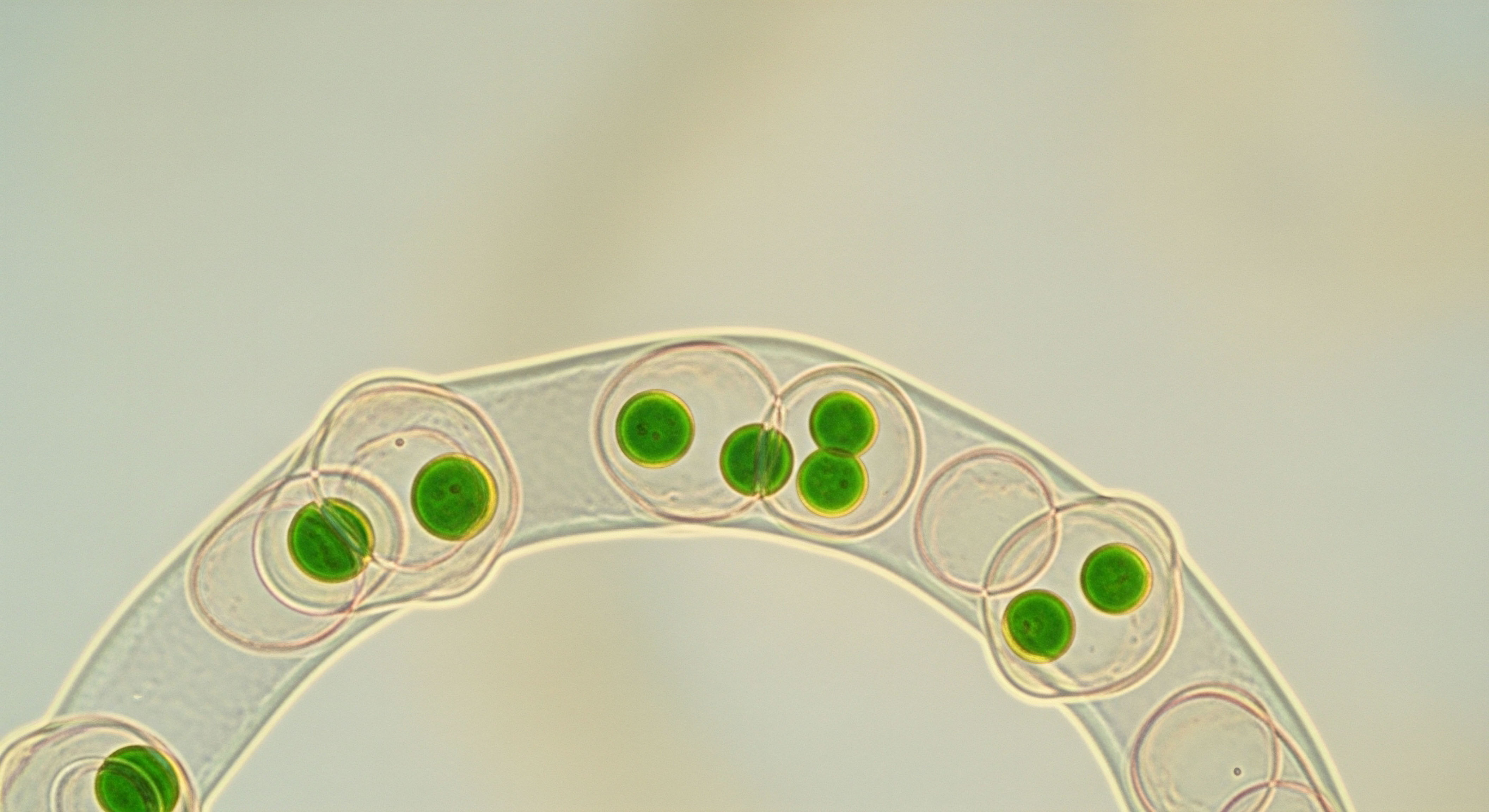

The Undeniable Imperative of Rhythmic Mastery
The foundation of peak human performance and sustained vitality is not built in sporadic bursts of effort, but through an intelligent, unwavering alignment with our intrinsic biological architecture. Mastering your night is the prerequisite to mastering your day. This is not a suggestion; it is a fundamental principle dictated by the elegant, yet powerful, systems that govern our physiology.
At the core of this principle lies the circadian rhythm, your body’s master conductor, orchestrating a symphony of biological processes over a 24-hour cycle. This internal clock, anchored by the suprachiasmatic nucleus (SCN) in the hypothalamus, is intrinsically tuned to the planet’s light-dark cycle, dictating critical hormonal releases, metabolic shifts, and cellular repair mechanisms.
When this rhythm is respected, the body operates with peak efficiency. Cortisol, the stress hormone, naturally peaks in the early morning, signaling wakefulness and preparing the body for activity, then gradually declines throughout the day. Conversely, growth hormone (GH), crucial for tissue repair, muscle growth, and metabolic regulation, is predominantly released during deep, nocturnal sleep stages.
Melatonin, the hormone that signals darkness and facilitates sleep onset, rises as ambient light diminishes. Testosterone, vital for energy, mood, and physical performance, also exhibits diurnal fluctuations. These hormonal rhythms are not mere biological curiosities; they are the engine room of your physical and cognitive capabilities.
Disruption of these rhythms, through irregular sleep patterns, artificial light exposure at night, or inconsistent daily schedules, throws this finely tuned system into disarray. This hormonal discord can manifest as diminished cognitive function, impaired recovery, compromised metabolic health, and a pervasive lack of drive.
The direct link between disrupted circadian rhythms and hormonal imbalances is well-established, impacting glucose homeostasis, lipid metabolism, and increasing the risk of chronic health conditions such as obesity and insulin insensitivity. Therefore, understanding and honoring these rhythms is the first, non-negotiable step in unlocking your biological potential.
The impact extends beyond mere hormonal balance. Sleep itself is a critical period for memory consolidation, emotional regulation, and cellular regeneration. Research indicates that regularly sleeping six hours or less per night can impair cognitive performance as severely as being awake for two consecutive nights.
The grogginess experienced upon waking, known as sleep inertia, is often a consequence of being roused during a deep sleep cycle rather than at its natural conclusion. By synchronizing your sleep with your circadian rhythm, you optimize the quality and restorative power of this essential biological process, ensuring that your brain and body are primed for peak performance when you are awake.
The implications for athletic performance and daily productivity are profound. Studies demonstrate that hormonal secretion patterns, influenced by circadian rhythms, create anabolic and catabolic environments that vary throughout the day. This influences protein synthesis and degradation, core body temperature, and energy expenditure, all of which are paramount for athletic adaptation and sustained energy levels.
A well-regulated circadian system ensures that the body is in an optimal state for physical exertion, recovery, and cognitive engagement, transforming the potential for a functional day into a certainty.


Engineering Optimal States through Precise Intervention
Achieving mastery over your night and day requires a strategic, science-driven approach ∞ a blueprint for optimizing your biological system. This involves a multi-pronged strategy that addresses environmental cues, behavioral patterns, and, where appropriate, advanced therapeutic interventions.

Illuminating the Path ∞ Light Management
Light is the most potent synchronizer of your circadian clock. Harnessing its power is paramount. During daylight hours, particularly in the morning, seek out bright, natural light exposure. This reinforces your internal clock, signaling wakefulness and setting the stage for a robust cortisol rhythm.
Aim for at least 30 minutes of outdoor light exposure within the first hour of waking. Conversely, as evening approaches, minimize exposure to artificial light, especially blue light emitted from screens. Blue light suppresses melatonin production, tricking your brain into believing it is still daytime, thereby disrupting sleep onset. Consider using blue-light blocking glasses in the hours before bed or implementing dim, warm lighting in your living spaces.

Architecting Restorative Sleep
The architecture of your sleep is as critical as the duration. Consistency is the cornerstone. Establishing a regular sleep-wake schedule, even on weekends, reinforces your circadian rhythm. This signals to your body when to expect rest, promoting more efficient sleep onset and reduced awakenings.
Optimize your sleep environment by ensuring it is dark, quiet, and cool. A temperature between 60-67°F (15-19°C) is often cited as optimal for sleep. Consider incorporating a hot shower or bath 60-90 minutes before bed; the subsequent rapid drop in body temperature signals to your brain that it is time to sleep.

Calibrating Nutritional and Metabolic Timing
What and when you eat profoundly impacts your circadian rhythm and hormonal balance. Avoid heavy meals, caffeine, and alcohol in the hours leading up to bedtime. The digestive process can elevate body temperature and disrupt sleep. Establishing a consistent eating window, ideally finishing your last meal 3-4 hours before sleep, allows your body to shift into a restorative, fasted state overnight. This also supports metabolic health by aligning nutrient processing with your body’s natural rhythms.

The Strategic Application of Peptide Therapy
For individuals seeking to optimize beyond fundamental lifestyle interventions, peptide therapy offers a sophisticated avenue. Peptides, short chains of amino acids, act as biological messengers, influencing cellular processes with remarkable precision. Several peptides have demonstrated significant potential in enhancing sleep quality and restoring circadian balance.

Growth Hormone-Releasing Hormone (GHRH) and CJC-1295
GHRH, naturally produced in the hypothalamus, stimulates the pituitary gland to release growth hormone (GH). GH release is strongly tied to deep, slow-wave sleep (SWS). Peptides like GHRH analogs (e.g. CJC-1295) can amplify GH secretion, particularly during nocturnal sleep, thereby increasing the duration and quality of SWS.
This not only promotes physical recovery and muscle repair but also aids in memory consolidation and metabolic regulation. Studies indicate that GHRH can improve sleep quality in both healthy individuals and those with sleep disorders, enhancing memory and learning functions associated with deep sleep.

Delta Sleep-Inducing Peptide (DSIP)
DSIP is a neuropeptide that has shown promise in directly influencing sleep architecture. Research suggests DSIP can initiate and maintain deep, slow-wave sleep, shifting the balance from lighter sleep stages to more restorative ones. It achieves this by lowering stress hormones like cortisol and promoting relaxation, making it easier to fall asleep and stay asleep without frequent awakenings. DSIP has also been observed to reduce anxiety, a common disruptor of sleep.

Epitalon (epithalon)
Epitalon is a synthetic peptide analog of epithalamin, a naturally occurring peptide from the pineal gland that regulates melatonin production and biological rhythms. It is particularly noted for its ability to restore circadian rhythm, especially in older individuals experiencing diminished melatonin secretion. Epitalon can increase natural melatonin levels, improve sleep quality, and enhance circadian alignment, while also offering benefits in slowing aging markers and supporting longevity.

Orexins and Neuropeptide Y (NPY)
The orexin system is central to regulating wakefulness. While orexins promote alertness, dysregulation ∞ specifically elevated orexin levels ∞ can contribute to hyperarousal and insomnia. Peptides that modulate orexin signaling may help reduce excessive wakefulness. Conversely, Neuropeptide Y (NPY) counteracts the fight-or-flight response, reducing hyperarousal and promoting calm, thereby supporting sleep efficiency, particularly in individuals experiencing stress-induced sleep disruptions.

Oxytocin
Known as the “bonding hormone,” oxytocin also plays a role in sleep regulation. It increases parasympathetic (relaxation) activity during sleep, can improve measures of sleep apnea, reduces time to sleep onset, and enhances sleep efficiency and REM sleep percentage. Its role in growth, healing, and resilience is also intrinsically linked to quality sleep.
Growth hormone secretion has a peak during nocturnal hours in the dark phase of the day. If this dark scheme is disrupted, there are other pulses of GH release during the light/awake period to compensate its possible deficiency.
It is imperative to consult with a qualified healthcare professional before considering any peptide therapy. These interventions are most effective when integrated into a comprehensive strategy that includes optimized sleep hygiene, light management, and nutritional timing.

Mindful Engagement and Recovery
Beyond the physiological, mental discipline is key. Develop a clear boundary between your work life and personal life. A consistent evening routine, signaling the end of the day’s demands, is crucial. This routine should de-stress the body and mind, preparing you for deep sleep. Reviewing your top priorities for the following day the evening before can reduce morning decision fatigue and ensure your most critical tasks are addressed when your cognitive capacity is highest.


Synchronizing Action with Biological Imperatives
The efficacy of any performance optimization strategy hinges on its temporal alignment with your body’s innate biological rhythms. Understanding ‘when’ to implement specific actions is as critical as understanding ‘why’ and ‘how’. This temporal precision transforms well-intentioned habits into powerful biological signals.

Morning Light Exposure ∞ The Day’s Reset Button
The most impactful time to engage with light is within the first 1-2 hours after waking. Exposing yourself to bright, natural light during this period is essential for anchoring your circadian clock. This exposure helps to suppress melatonin and elevate cortisol, initiating the wakefulness cascade and setting the tone for the day’s hormonal and metabolic rhythms. Delaying this exposure can lead to a misalignment, resulting in grogginess and diminished daytime alertness.

Nocturnal Hormone Peaks ∞ The Prime Time for Repair
The deepest stages of sleep, particularly slow-wave sleep (SWS), are when the body undertakes its most critical restorative work. This is when Growth Hormone (GH) secretion is at its zenith. To maximize these benefits, prioritize consistent, high-quality sleep that allows for sufficient time in SWS. This typically occurs in the earlier cycles of sleep. Ensuring your sleep environment is optimized for uninterrupted rest is paramount during these crucial nocturnal hours.

Evening Light Reduction ∞ Signaling Rest
As the day transitions into night, a gradual reduction in light exposure, especially blue light, is vital. Begin dimming lights and reducing screen time 2-3 hours before your intended bedtime. This gradual dimming signals to the pineal gland that darkness is approaching, allowing for the natural rise in melatonin production, which is essential for initiating and maintaining sleep.

Nutritional Windows ∞ Fueling and Fasting Cycles
The timing of your food intake plays a significant role in metabolic regulation and circadian alignment. Aim to complete your final meal at least 3-4 hours before sleep. This allows adequate time for digestion and prevents the metabolic disruption that can occur when the body is trying to sleep while processing a heavy meal.
Consuming nutrients outside of your typical active phase can disrupt metabolic pathways and sleep quality. Conversely, breaking your overnight fast with a nutrient-dense meal shortly after waking can support energy levels and metabolic function.

Specific Timings for Advanced Interventions
For those employing peptide therapies, timing can be strategic:
- GHRH/CJC-1295: Often administered before bed to synergize with the natural GH pulse during sleep, thereby maximizing SWS enhancement.
- DSIP: Typically used to aid in sleep onset and maintenance, making it a pre-sleep intervention.
- Epitalon: Can be administered in the evening to support melatonin production and circadian rhythm alignment.
These advanced protocols are designed to complement, not replace, fundamental circadian alignment practices. The most profound results are achieved when precise timing aligns with the body’s inherent biological imperatives.

The Chronotype Consideration
Recognizing your individual chronotype ∞ whether you are an early bird or a night owl ∞ allows for personalization of your schedule. While the core principles of light exposure and dark avoidance remain constant, the exact timing of your most productive periods and your optimal sleep window may vary. Adapting your schedule to align with your chronotype, while still adhering to circadian principles, can enhance overall efficacy and adherence.

The Architect’s Final Decree ∞ Daybreak’s Dominion
The mastery of your waking hours is not a consequence of mere willpower or random effort; it is the direct, predictable outcome of disciplined stewardship over your nocturnal cycle. Your circadian rhythm is the fundamental operating system of your biology.
By aligning your actions with its immutable laws ∞ optimizing light exposure, structuring your sleep environment, calibrating your nutritional timing, and judiciously employing advanced interventions ∞ you are not simply managing your health; you are architecting a superior state of being. This integrated approach transforms potential into consistent, tangible results, unlocking levels of vitality, cognitive acuity, and physical resilience previously unattainable. The day that dawns with the power of a well-mastered night is a day of unparalleled dominion.

Glossary

circadian rhythm

growth hormone

cortisol

sleep onset

melatonin

metabolic health

light exposure

deep sleep

melatonin production

hours before

peptide therapy

sleep quality




